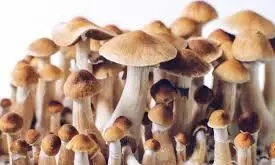
Brain scans explore magic mushrooms and mental health in new study
text_fieldsResearchers from Washington University School of Medicine in St. Louis have conducted a pioneering study on the effects of psilocybin, the active compound in magic mushrooms, on brain activity.
Published in the journal Nature, the study aimed to explore the potential of psilocybin in treating various mental disorders by examining its impact on brain function.
The study involved brain scans of seven healthy participants who underwent 18 fMRI scans each, taken before, during, and after ingesting psilocybin.
The scans revealed that psilocybin disrupted established connections between different brain areas while enhancing communication between distinct brain networks. This suggests that psilocybin induces a state of increased brain connectivity and less predictable information processing, creating a more disordered brain state.
The researchers noted that the study was meticulously controlled, overcoming the challenges of obtaining fMRI data from participants under the influence of psychedelics.
An "active control" involving a stimulant drug was used to enhance the study's validity. Notably, lasting changes were observed in the connectivity between the hippocampus, which plays a role in short-term memory, and the default mode network, which is active during rest. These changes could underlie the neuroplastic and therapeutic effects of psilocybin.
Despite the promising findings, the study's small sample size and the inclusion of only healthy volunteers limit its generalizability to patient populations who might benefit from psilocybin-assisted therapy. Potential selection bias and the difficulty of maintaining a double-blind procedure due to psilocybin's noticeable effects are also concerns.
Furthermore, the study did not report any long-term improvements in participants' well-being, raising questions about the clinical relevance of psilocybin. Conflicts of interest related to the commercialization of neurotechnologies used in the study were also noted as potential sources of bias.
Despite these limitations, the study adds to the growing body of research on psychedelic-assisted therapy, highlighting the potential of psilocybin in mental health treatment and sparking further interest in this innovative approach.






















